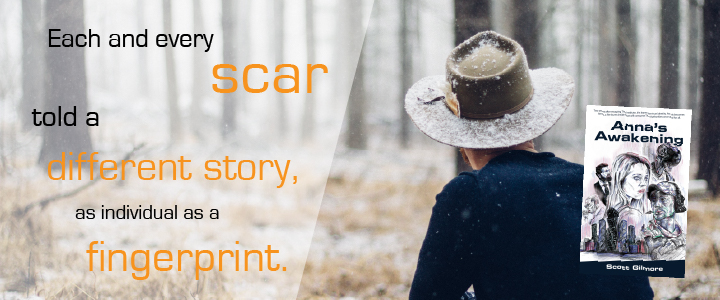Writer’s block is considered to be an impassable wall to many writers. If it’s real, how can you scale it and complete your work in progress?
In this Writer’s Block article, you will find tips in the following areas:
- Why writer’s block is crippling for some writers no matter their age or ability,
- If it is a myth, why does it get so much attention online or between writers?
- Which overriding factors in life can be considered as writers block, and
- A series of tips that any writer can use to overcome the demons that halt their writing progress.
Read the rest of the Writers Block article and learn how to be inspired for 2021.
Writers can consider writers block to be a hindrance to authors, poets, and dramatists worldwide. Whether you are a seasoned writer with multiple publications under your belt or a newcomer to the world of creative writing, one can be faced with a fallow period where ideas appear to illude.
These times where our inspiration may have taken a hiatus, and we are left staring at a blank page, is some of the most frustrating for any writer. We stare off into the corner of a room, searching for something that could spark into the tiniest of flames for our following poem, fiction books or script. Yet, when those sparks fail to catch any form of kindling, we can begin to doubt ourselves, grow increasingly frustrated and potentially examine whether we may ever be able to write again!
In this creative writing blog article, I consider whether writer’s block is something we should worry about as creatives or dispel it as a myth. I also suggest several tips that you could try to shake off those moments of frustration and get that next story moving.

Is Writers Block Real?
Firstly, we need to look at the beast at the heart of the issue. Is writer’s block real? In a word, no. If we consider other creative professions, there are clear examples of when our creative juices appear to dry up for no reason and without any warning.
Some examples of other creative areas where a lack of inspiration can strike include:
- Fashion,
- Product design,
- The world of advertising, and
- Architecture.
If one were to work in some of the areas listed above, one would be laughed out of the office if you said you had a crisis of inspiration. In short, your boss would pull you aside and have stern words about how a client’s account needs to be completed by lunchtime tomorrow, so get it done or clear your desk.
As writing is seen to be something that 99% of writers do as a hobby, it is the easiest task to walk away from when times get tough. Many of us could well have real-life pressures and commitments that distract us from what is required to complete our work in progress. However, this completely normal and ought to be accepted rather than viewing our lack of progress as writer’s block when we forget that fantastic idea or find that our writing skills cease up after a time.
If you are hard on yourself for lack of progress over the last twelve to eighteen months, rest assured that you are one of the billions of people who have had to put plans on hold. Allowing yourself the opportunity to accept that your current project may not have been completed as planned is the first step to planning how to move forward.
Writers Block: The Myth
Rather than see writer’s block as a complete myth, it is better to see it as a potential ebbing-away of creative inspiration due to internal or external factors. The creative world is a complex one that is full of peaks and troughs, meaning that, without warning, we could be left wondering where the good days have gone and why we appear to be left with nothing.
Some external pressures can impact our creative ideas and mean we feel we suffer from writer’s block. These include:
- Family life,
- Career pressure,
- Home-schooling throughout a pandemic,
- Study for a course,
- Or one of a million other reasons.
If one or more external factors influence our writing time, we can find it challenging to keep up the momentum, and before we know it, everything grinds to a halt and ‘writers block’ can set in.
There can also be a series of anxieties or personality traits that could affect our output of stories, poems or plays. The internal barriers millions of people face daily can mean that the very idea of publishing a book or approaching a literary agent for representation is their Mount Everest.
The fact that some of us are procrastinators can mean that we look for every opportunity to run a mile from our current project. This flaw is made more difficult with the world of social media distraction, where our phones and devices continuously battle to retain our attention dozens of times a day.
We could also be novices at the idea of writing a book, and one may be crippled by fear or perfectionism that means a book may never see the light of day. Talking with hundreds of authors online over the last few years, it is clear that a large percentage of them have suffered from some form of perfectionism that means they struggle to see an end date for their book.
In reality, there are thousands of reasons why we may feel we suffer from writer’s block. The main point to keep in mind is that you need to keep writing in some way or another. Whether it is completing website copywriting for a client, writing dialogue to get to know a character, or planning a part of a story, we must keep being actively creative.

Tip One – ‘Just Do It: Write!’
It may come across as an overly simplistic point to make to someone suffering from a lack of inspiration, but by sitting down for a short time with no preconceived ideas, one can write for the sake of writing.
There doesn’t need to be a time limit to the session, and, if possible, don’t look to work on the book you’ve found yourself stuck on. It is a case of finding a place at home or outdoors that can be your workspace for X minutes and writing something at random. Whether you bring a notepad with you or use your mobile phone, it doesn’t matter. It’s a case of getting something out of your mind and into a coherent string of words. By doing so, you can breathe a sigh of relief and say, ‘I wrote something!’
When choosing to write in this manner, you must lower your expectations, meaning that you accept what you have written for what it is. By allowing perfectionism to creep in and taint the work, you will grow increasingly frustrated and give up in no time.
I have used this flash writing strategy on multiple occasions and, over time, I was able to compile a series of short stories. In the months ahead, I hope to compile these into a collection called The Hexingham Chronicles and release them as an audiobook, a book on KDP, or both. Either way, I could use ‘writer’s block’ in a positive light and keep my creative ideas flowing.
Tip Two – Read For The Sake Of It
It has often been said that great writers are great readers. This does not mean that you sit down with a tome of literary fiction that is like work in itself. I feel that the opposite approach is required.
By finding a novel that you feel is complete escapism, you can allow your mind to relax and forget any anxieties surrounding your work in progress. You can choose to read a book or collection of poetry that you love dearly or pick a random indie author’s eBook from the Kindle store. It doesn’t matter. If you can take the focus off your writer’s block, you allow the opportunity for the clouds to part and inspiration to shine a light through once more.
Lately, I have taken this approach as Covid lockdowns and home-schooling has meant my writing time has evaporated. Also, by setting up a thriving tuition business, I find that I’m exhausted and can’t turn my attention to writing the final instalment of the IRIS trilogy for the moment.
Instead, I have continued to write my blog and read a selection of books that I have never read before. In doing so, I allow my mind to see how others write, have their characters interact and structure stories in general.

Tip Three – A ‘Creative’ Space
When I have been writing, either as a fiction author or as a website copywriter, I have made sure to set out a creative space designated for work. While sitting at the desk, I ensure that I have all other non-essential devices set far enough away, so I don’t get distracted. I also ensure all social media is closed on my computer. This means I am free to focus on the story at hand or my client’s brief.
There is no doubt that I have moments of distraction or procrastination. The bottom line is that I am human and will stray from time to time to look up YouTube content or scroll through Amazon searching for books to develop my pedagogy as a teacher. However, having this space ensures my mind can flick into ‘work mode’ and train my habits accordingly.
One’s creative space can also be mobile. Sometimes we can get sick of seeing the same four walls and stroking keys at the same desk. Such boredom can allow us to yearn for somewhere different to write and explore our current story.
If this sounds familiar, why not choose to take a walk or stay in a hotel for a weekend. Once there, you can settle down with the following things in mind:
- Relaxation,
- Distraction, and
- Writing X pages of your work in progress.
By allowing that change of scenery and routine, you could find yourself coming away with more than just words on a page. A renewed sense of purpose could push you further towards the completion of your first book.
Writer’s Block: The Takeaway
As stated at the start of this article, I believe that the notion of writer’s block is a myth. Writers are not the only people in the creative industries who can be struck down with a lack of inspiration, like a disease or virus. Instead, we are one of a plethora of creatives who can find themselves cast adrift by the gods of inspiration and creativity.
By looking at other outlets and distractions from the work that has stalled for reasons unknown, we can give our minds space to do what they do naturally – create.
Try not to allow your creative mind to become shackled by writer’s block in the months ahead. Instead, use the tips above to get the wheels moving once more and comment below with other approaches you have used to stay creative.

